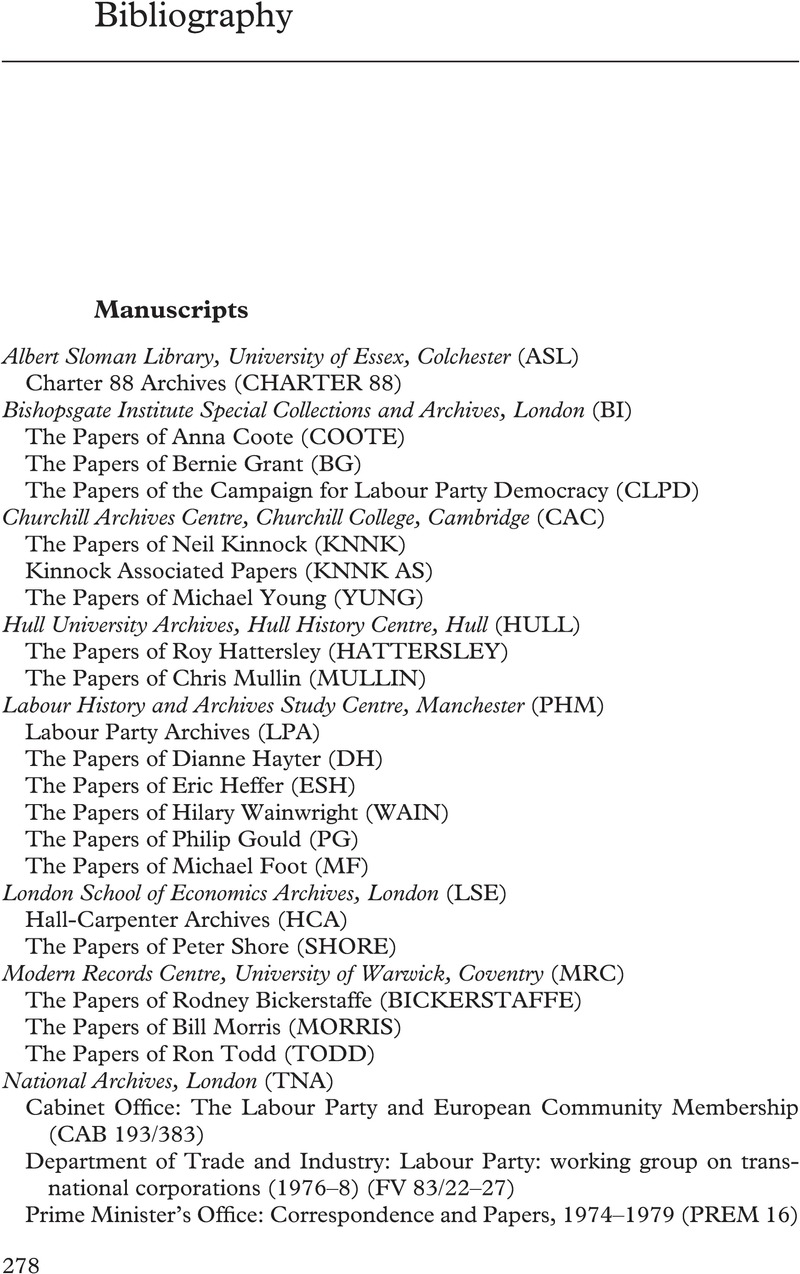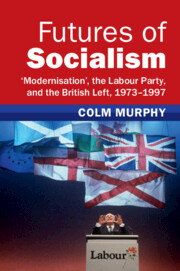Book contents
- Futures of Socialism
- Modern British Histories
- Futures of Socialism
- Copyright page
- Contents
- Figures
- Tables
- Acknowledgements
- Introduction: The Plural Modernisations of the British Left
- Part I Social Democracy and the Challenge to the Nation State
- Part II Identities and ‘Modern Socialism’
- Part III The Search for a Modernising Social Democracy
- Bibliography
- Index
- References
Bibliography
Published online by Cambridge University Press: 25 May 2023
- Futures of Socialism
- Modern British Histories
- Futures of Socialism
- Copyright page
- Contents
- Figures
- Tables
- Acknowledgements
- Introduction: The Plural Modernisations of the British Left
- Part I Social Democracy and the Challenge to the Nation State
- Part II Identities and ‘Modern Socialism’
- Part III The Search for a Modernising Social Democracy
- Bibliography
- Index
- References
Summary

- Type
- Chapter
- Information
- Futures of Socialism‘Modernisation', the Labour Party, and the British Left, 1973–1997, pp. 278 - 306Publisher: Cambridge University PressPrint publication year: 2023

